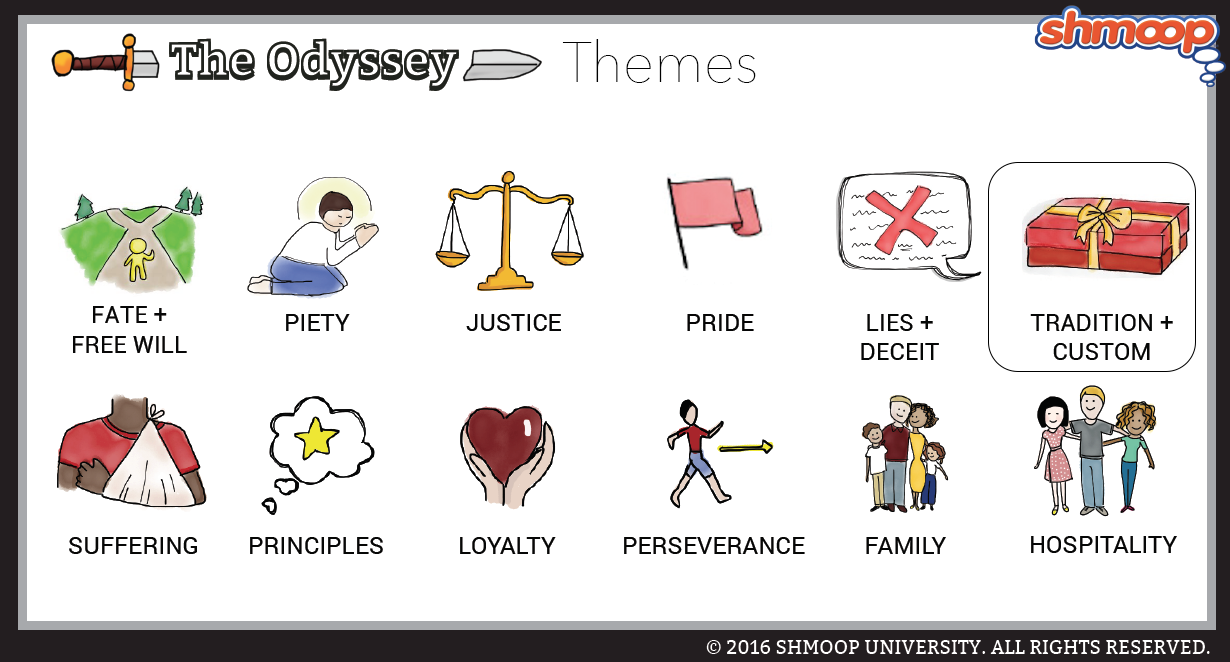 (Click the themes infographic to download.)
(Click the themes infographic to download.)
In an accurate reflection of ancient Greek culture, rules of hospitality are among the most revered social and religious laws in the Odyssey. Men are measured by the way they play host or guest, and those that antagonize the hero often do so by failing their part of this important contract. Guests are expected to bring gifts to their host, respect the house and servants, and act with grace and appreciation. Often, the guest is a source of news and bearings from the outside world and expected, in some ways, to sing for his supper. The host is then to provide food, shelter, and even money and transportation if the guest is in need. Breaking these obligations in the Odyssey is disrespectful to the gods and indicates a somewhat subhuman status.
Questions About Tradition and Custom
- Who violates hospitality laws more severely, the suitors by their greed, or Kalypso by holding Odysseus captive?
- The Phaiakians are the epitome of good hospitality in the Odyssey, yet they are punished by a god for their actions. How is this possibly just? Is this an argument against hospitality?
- How is the concept of hospitality related to the gods? Why might piety be so closely related to good hospitality?
Chew on This
Because they violated the laws of hospitality, according to the world depicted in the Odyssey, both Polyphemos and the suitors got what they deserved.
The Phaiakians’ remarkable hospitality towards Odysseus was ultimately not worth all the trouble it caused.